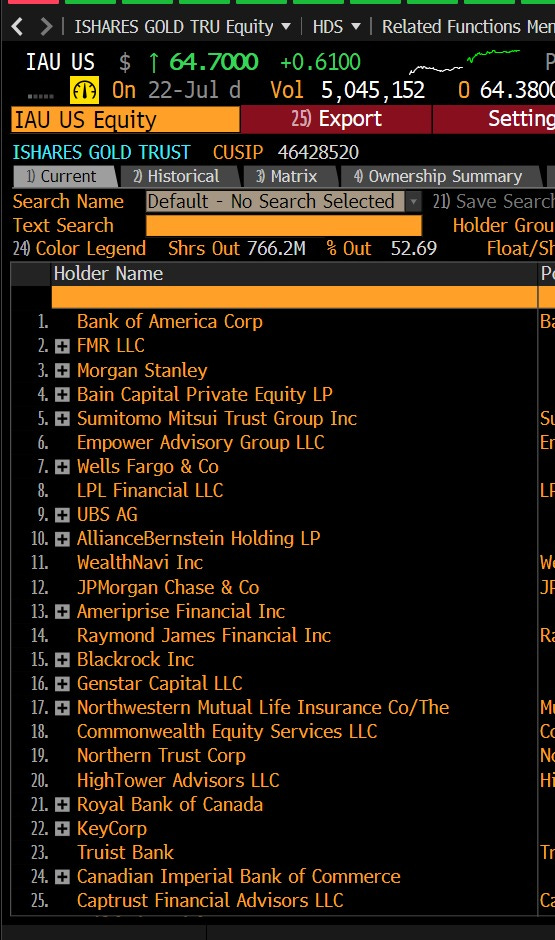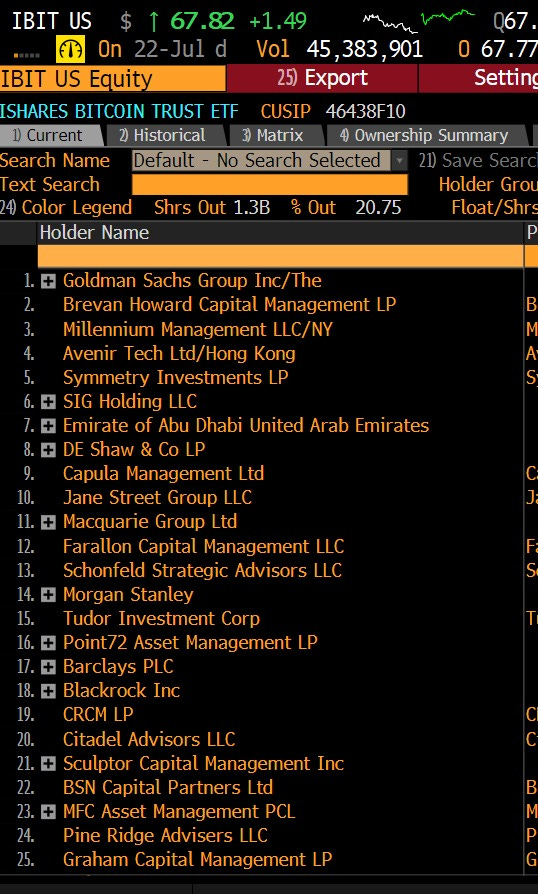This week I was listening to Merryn Talks Money.
My old boss and great friend, Merryn Somerset Webb, was discussing portfolio allocation - which assets should make up the 40 in a 60:40 bond-to-equity portfolio - with Nataliia Lipikhana, executive director at JP Morgan . Merryn asked if bitcoin should be one of the assets to include, alongside gold. Lipikhana, who, until then, had spoken widely, fluently and knowledgeably about a range of subjects, suddenly stonewalled.
“We don’t cover it so we can’t talk about it,” she said.
Awkward pause.
Merryn laughs.
“At all?”
“No,” says Lipikhana.
Another pause.
“Ok,” says Merryn. “Totally understand,” and she changed the subject.
This is a symptom of something much bigger that has been at play throughout the institutional world, and not just in the UK, since the emergence of bitcoin and other cryptocurrencies.
They’ve been shadowbanned.
We know of course about the UK’s Financial Conduct Authority, how its regulations went against the pronouncements of various Chancellors, and how it effectively excluded UK citizens from the sector. Something similar has long been happening at the institutional level.
“Most private banks will not accept bitcoin ETF orders for their clients, despite being able to deal with elective professionals,” a fund manager friend (who prefers to stay anonymous) tells me. “This applies in countries where there is no ban because the bank will have links to London. Even in the US, the traditional institutions will ban bitcoin internally.”
Here’s a list of the biggest holders of the iShares gold ETF. Many of banking’s biggest names are there.
Now here’s a list of the iShares bitcoin ETF’s biggest holders.
There is nothing like the same institutional weight.
(Goldman and Morgan Stanley will be market making on behalf of hedge fund clients)
“Lipikhana probably feels she might get the sack if she comments on bitcoin,” my fund manager friend continues. “So she doesn’t”.
You know my saying, “A bubble is a bull market in which you don’t have a position”. For years now, banks have been talking their clients away from this sector, often using that argument that it’s a bubble. This pre-dates the ETFs by ten years or more.
Wall Street and the City don’t like bitcoin because they didn’t get there first. Smelly private investors did. They missed out on this epic opportunity and, rather than embrace it, they ignore it.
They don’t control it. They can’t manipulate it.
Don’t talk about bitcoin. Perhaps it’ll go away.
Well, it hasn’t and it won’t. It is here to stay.
Now with the emergence of the both the ETFs and the bitcoin treasury companies, bitcoin is edging its way further and further into the financial mainstream.
“You get bitcoin at the price you deserve,” runs the saying. Ain’t it so.
What this means for investors is that there is a huge wall of institutional money that is still to come into the sector. It will eventually.
Bitcoin is the most technologically advanced money in history. Now that real estate is gone as a vehicle to protect against currency debasement (too highly legislated and taxed), the need for an effective savings vehicle is only greater.
Bitcoin is the best savings vehicle there is.
I love gold. You know I do. I think it has an enormous strategic role to play in the coming years, and should play a part in every portfolio.
But bitcoin appreciates by more. It beats stocks. It beats bonds. It beats commodities.
But JP Morgan would rather not comment.
PS Don’t forget my brilliant book about bitcoin, if you want to learn more about the space.















